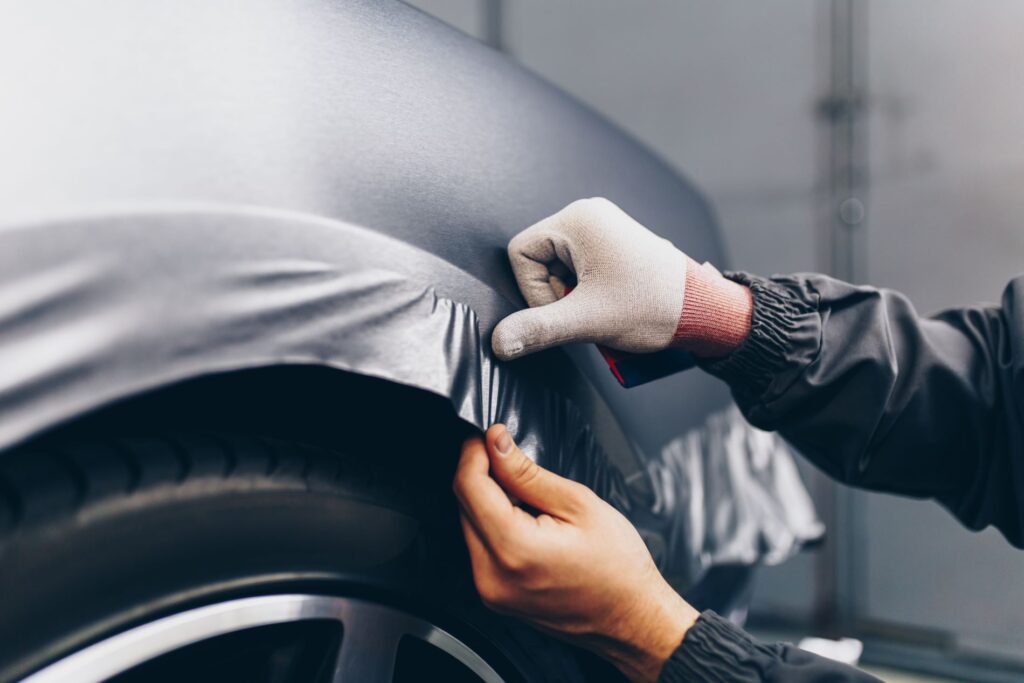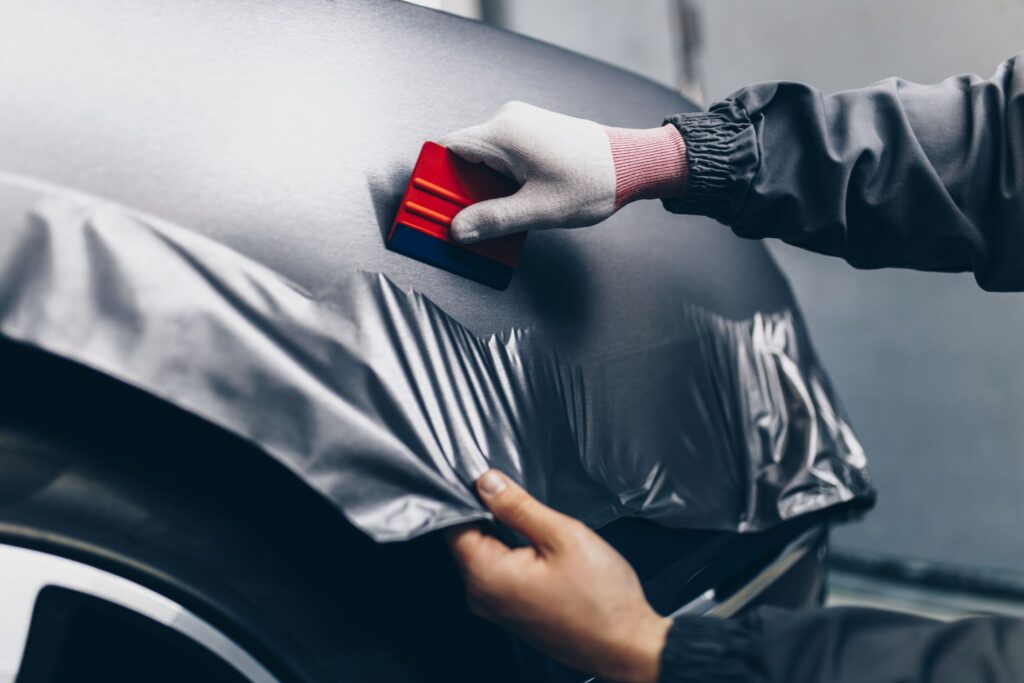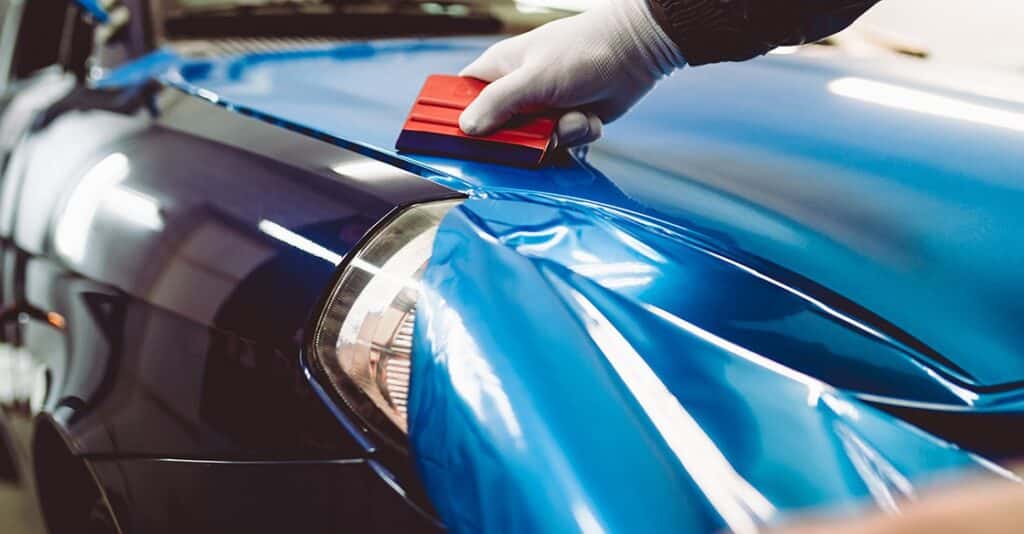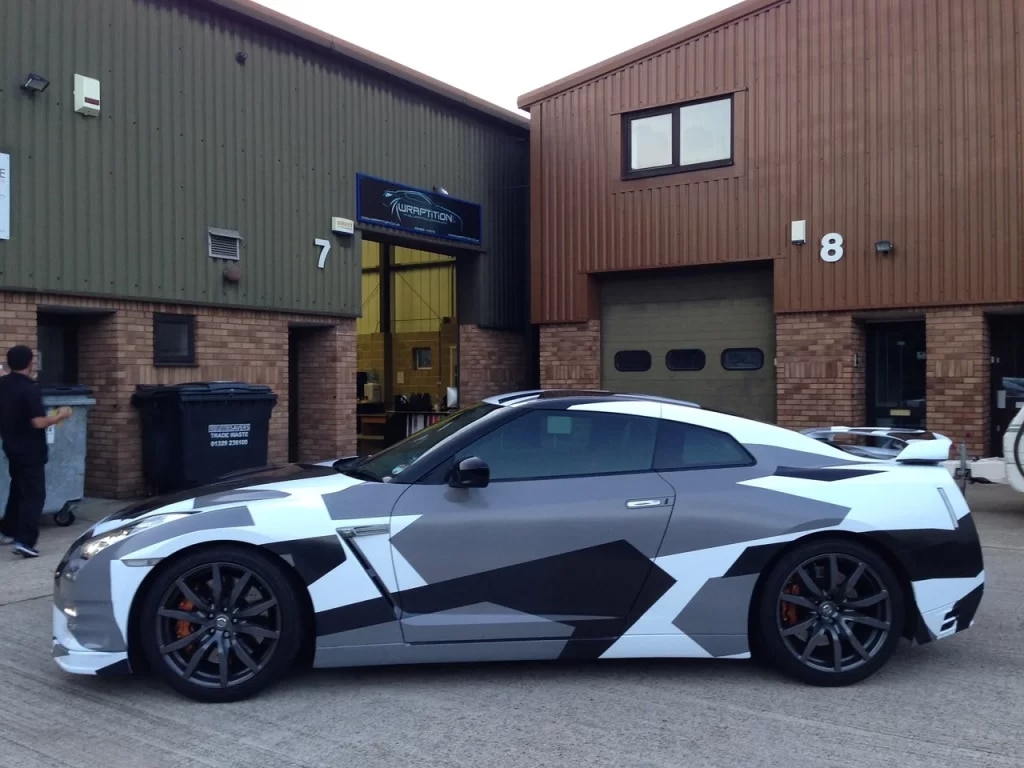Table of Contents
When we talk about upgrading the car with premium quality car speakers, booster seats, or car wax to give an additional luster to the car exterior, it is impossible not to discuss the car wraps. These wraps have become popular in recent years due to their features, which protect the car and lend an aesthetic appeal. You can literally transform your car into something completely new with the car wraps of various colors, designs, and graphics. Wrapping your car professionally will help you renovate the look and make your automobile stand out. Talking about car wraps, the cost to wrap a car depends on various factors ranging from the size and model of the car to the design of the car wrap selected. This article guide aims to provide comprehensive information on all these factors to help you make an informed decision when choosing a car wrap.

Factors Affecting the Cost to Wrap a Car
Many factors can affect the cost of car wrapping, with each factor contributing to the overall price. Listed below are the factors that affect the price of wrapping a vehicle:
1. Vehicle Size and Type Affect the Cost to Wrap a Car
When we talk about how much does it cost to get a car wrapped, this is the first factor to consider. One of the main factors influencing the cost of packaging is the type and size of the vehicle. In comparison to compact automobiles, larger vehicles such as trucks, vans, and SUVs demand greater quantities of materials and labor, which impacts production costs. Moreover, if you own a small vehicle and wonder how much does it cost to wrap a small car, make sure that you are aware of how much square meter wrap is needed if you are doing it at home or by yourself.
2. The Cost to Wrap a Car is influenced by Wrap Material Quality
Considerable variation exists in the quality of the vinyl wrap material utilized with regard to its aspect, durability, and longevity. Superior quality materials, often originating from reputable brands, are generally more expensive in comparison to generic or inferior-grade vinyl. Of course, the good condition car wraps cost more than ordinary ones. So, if you wonder how much does it cost to have a car wrapped. keep in mind the wrap quality you are choosing.
3. Wrap Material Finish Matters A lot in Determining the Cost to Wrap a Car
The cost may be influenced by the treatment of the wrap material, which may include matte, gloss, satin, metallic, or textured options. Specialty finishes are frequently more expensive than standard glossy covers due to their distinctive qualities and production methods. so, of course if you are deciding on how much does it cost to matte wrap a car, you have to think of the matte finish costs first.
4. Design Complexity Determine the Cost to Wrap a Car
The cost of the vehicle can be affected by the complexity of the design or artwork that is being implemented. Installing intricate designs, custom graphics, or intricate patterns necessitates additional time and expertise, which in turn leads to increased labor expenses. Professional car wrapping entails refined services, so choose accordingly.
5. Surface Preparation
In order to guarantee the durability of the covering, it is important to carry out adequate surface preparation. Costs associated with thorough surface cleaning, decal removal, dent and scratch restorations, and so forth can add to the total cost associated with the wrapping procedure.
6. Professional Installation Affects the Cost to Wrap a Car
For a successful wrap, it is essential to hire a competent and experienced professional installer. He will measure the square meters needed depending on the size of the car. However, different types of vehicles have different car wraps. The price will be determined by the installer’s level of expertise and the quality of their labor. A decrease in price could affect quality, ultimately resulting in problems such as flaking or bubbling.
7. Location: Important Factor to Determine the Cost to Wrap a Car
The expense associated with automobile wrapping may differ depending on the service provider’s geographic coordinates. Prices may be higher in regions with higher living expenses or increased demand for vehicle customization services. The wrap installer might charge different fees depending on the location.
8. Additional Services also Affect the Cost to Wrap a Car
The next factor to determine the cost to wrap a car is the inclusion of additional services. Certain shops provide additional services, including design consultation, creation of custom graphics, and post-installation maintenance. While these services can raise the final price, they have the potential to improve the quality and personalization of the wrap. Moreover, these additional services also include partial wraps and full wraps.
9. Quantity of Vehicles Influences the Cost to Wrap a Car
In regards to the number of vehicles being wrapped at once, some businesses can offer bulk discounts or reduced rates per vehicle, which could potentially result in a decrease in the overall cost.
10. Warranty Matters when Determining the Cost to Wrap a Car
The cost can be influenced by whether there are warranties for both the materials and the installation. Extended warranties are frequently associated with higher-quality coverings, which not only offer security but also impact the overall cost.
By considering and discussing these factors with your chosen service provider, you can gain a better understanding of the cost breakdown and make more informed decisions when it comes to wrapping your car.

The average cost to wrap a car varies according to vehicle sizes, material quality, and design complexity, among other variables. The cost of a standard vinyl wrap for a mid-sized automobile typically varies between $1,500 and $3,000. However, expenses can exceed $5,000 for luxury cars or those that necessitate customized designs. Original paint on a vehicle in good condition generally necessitates less surface preparation, which in turn decreases labor expenses. Professional heat guns and other specialized equipment are used by wrap installers to ensure proper adhesion and finish. Material costs associated with metallic wraps and other specialized finishes can result in additional expenditures.
In addition, the overall cost may be increased if the vehicle has undergone extensive repairs or has undergone a previous paint job. Additionally, black vinyl wraps are widely used but can attract a marginal premium price point owing to the limited supply and high demand for this material.
However, if you want to know about the benefits of car wrapping, check out this blog.

Types of Car Wraps
A variety of car coverings are commercially available, with each providing distinctive aesthetics, textures, and functionalities.
The following are some commonly used car wraps:
1. Vinyl Wraps
Vinyl wraps are the most widely used and adaptable material. They are available in a variety of finishes, including metallic, matte, satin, and glossy, allowing for customization to suit individual tastes. Vinyl wraps safeguard the paint of a vehicle while also giving it an updated look. So, how much does it cost to vinyl wrap a car depends on the vehicle size. Moreover, if you wonder how much does it cost to remove a car wrap, you should be aware that it comes with the risk of paint damage and falls somewhere between $1000.
2. Matte Wraps
The non-reflective finish of matte wraps gives an elegant and understated aesthetic to vehicles. They are a popular option among individuals who desire an up-to-date and refined appearance.
3. Gloss Wraps
Gloss wraps resemble freshly painted surfaces with their reflective, lustrous finish. They can distinguish the vehicle from others on the road by improving its aesthetic appeal.
4. Satin Wraps
Satin wraps offer an ideal blend of matte and glossy qualities with their silky, low-gloss finish. They provide a distinctive appearance that merges luxury with a delicate luster.
5. Metallic Wraps
They are comprised of metallic particles that, when lit up, produce a shimmering effect. They contribute to the aesthetic appeal of the vehicle by introducing dimension and depth, resulting in a sophisticated and captivating exterior.
6. Color Change Wraps
These covers enable an in-depth modification of the vehicle’s paint job without requiring a repainting process. They are available in a wide variety of colors and textures, providing limitless opportunities for personalization.
7. Textured Wraps
Carbon fiber, polished metal, or leather are examples of materials that comprise textured wraps with patterns or textures. They give textural appeal to the exterior of the vehicle, resulting in a one-of-a-kind appearance.
8. Printed Wraps
Printed covers facilitate the installation of personalized designs, logos, or graphics onto the vehicle. They are often used for marketing purposes or for creating unique vehicle covers.
Selecting the type of vehicle wrap that caters to your preferences, budget, and intended use is critical, as each has its own set of advantages and factors to consider.
Conclusion
Wrapping up, this article covered detailed information on the factors influencing the cost to wrap a car. Not only do the car wraps give a polished and refined appearance to your vehicle, but they also protect the exterior of your car. however, the process of removing a car wrap can be risky and a bit troublesome. Moreover, you can easily choose from a variety of car wraps available in the market. So, choose the wrap that fits your needs and aesthetic taste.
Glossy Look with Car Wraps!


1 comment
[…] you go. Being a car aficionado, you can understand the importance of a freshly waxed car and car wrapping. But are you worried about which car wax is good for your vehicle? Don’t worry, as this guide […]